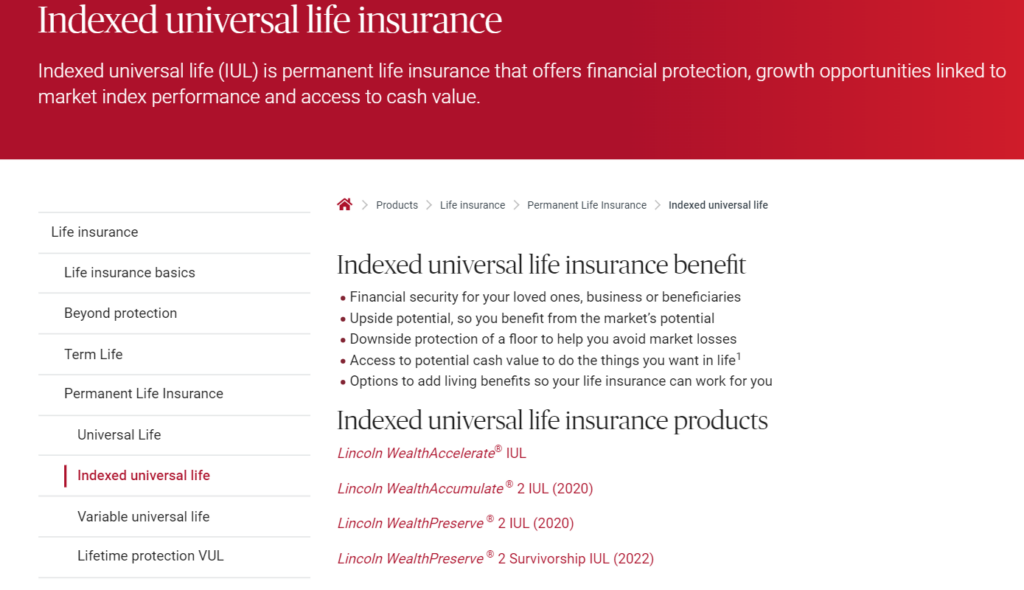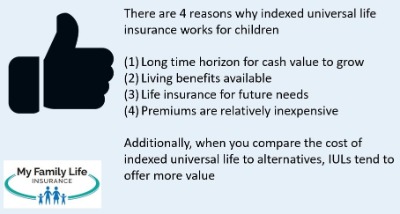All Categories
Featured
Table of Contents
Do they contrast the IUL to something like the Lead Total Amount Stock Market Fund Admiral Shares with no tons, a cost proportion (EMERGENCY ROOM) of 5 basis factors, a turn over proportion of 4.3%, and an exceptional tax-efficient document of distributions? No, they compare it to some horrible actively managed fund with an 8% lots, a 2% ER, an 80% turn over ratio, and a dreadful record of short-term resources gain circulations.
Common funds typically make annual taxable circulations to fund proprietors, also when the value of their fund has actually gone down in value. Shared funds not only require revenue reporting (and the resulting yearly taxation) when the common fund is increasing in worth, but can likewise enforce income tax obligations in a year when the fund has decreased in value.
You can tax-manage the fund, collecting losses and gains in order to minimize taxable circulations to the financiers, yet that isn't in some way going to change the reported return of the fund. The possession of common funds may need the mutual fund owner to pay estimated tax obligations (index universal life calculator).

IULs are simple to place to make sure that, at the proprietor's death, the beneficiary is not subject to either earnings or estate taxes. The very same tax decrease techniques do not work almost also with mutual funds. There are numerous, often costly, tax obligation catches linked with the moment trading of mutual fund shares, catches that do not relate to indexed life Insurance policy.
Opportunities aren't really high that you're going to undergo the AMT as a result of your shared fund circulations if you aren't without them. The remainder of this one is half-truths at finest. For example, while it is real that there is no revenue tax due to your successors when they acquire the proceeds of your IUL plan, it is also true that there is no revenue tax obligation due to your heirs when they acquire a shared fund in a taxed account from you.
Is Indexed Life Insurance A Good Investment
There are far better ways to prevent estate tax obligation concerns than purchasing financial investments with low returns. Common funds may trigger earnings tax of Social Security advantages.

The growth within the IUL is tax-deferred and may be taken as tax obligation free earnings by means of finances. The policy proprietor (vs. the common fund manager) is in control of his/her reportable revenue, hence enabling them to reduce or even eliminate the taxation of their Social Safety advantages. This is great.
Here's an additional marginal issue. It holds true if you get a shared fund for state $10 per share prior to the circulation day, and it disperses a $0.50 distribution, you are then mosting likely to owe tax obligations (most likely 7-10 cents per share) despite the truth that you have not yet had any type of gains.
In the end, it's actually regarding the after-tax return, not exactly how much you pay in tax obligations. You're additionally possibly going to have more cash after paying those tax obligations. The record-keeping needs for having mutual funds are considerably more complex.
With an IUL, one's records are kept by the insurance provider, duplicates of yearly statements are sent by mail to the proprietor, and distributions (if any type of) are amounted to and reported at year end. This is also type of silly. Obviously you must maintain your tax documents in instance of an audit.
Indexed Universal Life Insurance For Retirement
All you have to do is push the paper into your tax obligation folder when it turns up in the mail. Hardly a reason to buy life insurance. It resembles this person has never ever purchased a taxed account or something. Shared funds are frequently part of a decedent's probated estate.
Additionally, they undergo the delays and expenses of probate. The proceeds of the IUL policy, on the various other hand, is always a non-probate circulation that passes outside of probate straight to one's called recipients, and is consequently exempt to one's posthumous lenders, undesirable public disclosure, or comparable hold-ups and expenses.
We covered this under # 7, but simply to wrap up, if you have a taxable mutual fund account, you have to place it in a revocable trust fund (and even simpler, utilize the Transfer on Death designation) in order to stay clear of probate. Medicaid disqualification and lifetime earnings. An IUL can give their proprietors with a stream of income for their whole life time, no matter just how lengthy they live.
:max_bytes(150000):strip_icc()/dotdash-comparing-iul-insurance-iras-and-401ks-Final-71f14693e37d4fb1b0736112179802b5.jpg)
This is useful when arranging one's affairs, and converting possessions to revenue prior to an assisted living home arrest. Shared funds can not be converted in a similar manner, and are generally considered countable Medicaid possessions. This is one more stupid one promoting that poor people (you recognize, the ones that require Medicaid, a federal government program for the poor, to pay for their retirement home) should use IUL instead of mutual funds.
Iul Vs Whole Life
And life insurance policy looks terrible when compared relatively versus a pension. Second, individuals who have cash to buy IUL above and beyond their pension are going to need to be horrible at managing cash in order to ever get Medicaid to spend for their assisted living facility costs.
Chronic and incurable disease cyclist. All policies will enable an owner's simple access to cash from their plan, frequently waiving any surrender penalties when such individuals suffer a serious disease, need at-home treatment, or come to be confined to a retirement home. Shared funds do not supply a similar waiver when contingent deferred sales costs still use to a shared fund account whose owner needs to sell some shares to money the costs of such a stay.
The Difference Between Whole Life And Universal Life Insurance
You obtain to pay even more for that advantage (biker) with an insurance plan. Indexed universal life insurance policy provides fatality advantages to the beneficiaries of the IUL proprietors, and neither the owner neither the beneficiary can ever before shed cash due to a down market.
Now, ask yourself, do you actually need or desire a death advantage? I certainly do not need one after I reach financial independence. Do I want one? I expect if it were inexpensive sufficient. Obviously, it isn't affordable. Generally, a purchaser of life insurance policy spends for real cost of the life insurance policy benefit, plus the costs of the plan, plus the profits of the insurer.
Index Universal Life Insurance Quotes
I'm not totally sure why Mr. Morais threw in the whole "you can't shed cash" again below as it was covered fairly well in # 1. He simply intended to duplicate the most effective marketing factor for these things I expect. Once more, you don't shed small dollars, but you can lose actual bucks, in addition to face serious possibility cost as a result of low returns.

An indexed global life insurance coverage policy owner may exchange their policy for a completely different plan without causing earnings taxes. A common fund owner can stagnate funds from one mutual fund company to another without selling his shares at the former (thus setting off a taxed occasion), and redeeming brand-new shares at the last, frequently subject to sales costs at both.
While it holds true that you can trade one insurance plan for an additional, the reason that individuals do this is that the first one is such a horrible policy that even after acquiring a new one and going with the very early, adverse return years, you'll still come out ahead. If they were marketed the best policy the very first time, they shouldn't have any type of desire to ever before trade it and go with the very early, negative return years again.
Latest Posts
Insurance Indexation
Indexed Death Benefit
Variable Universal Life Vs Indexed Universal Life